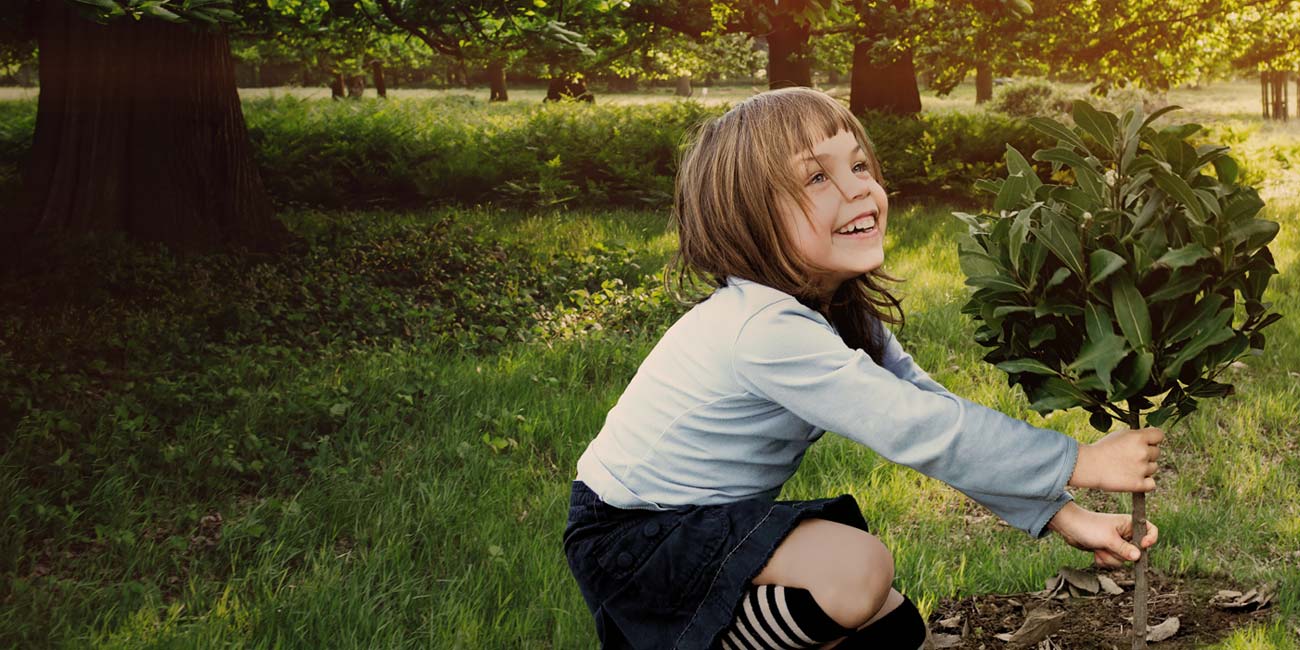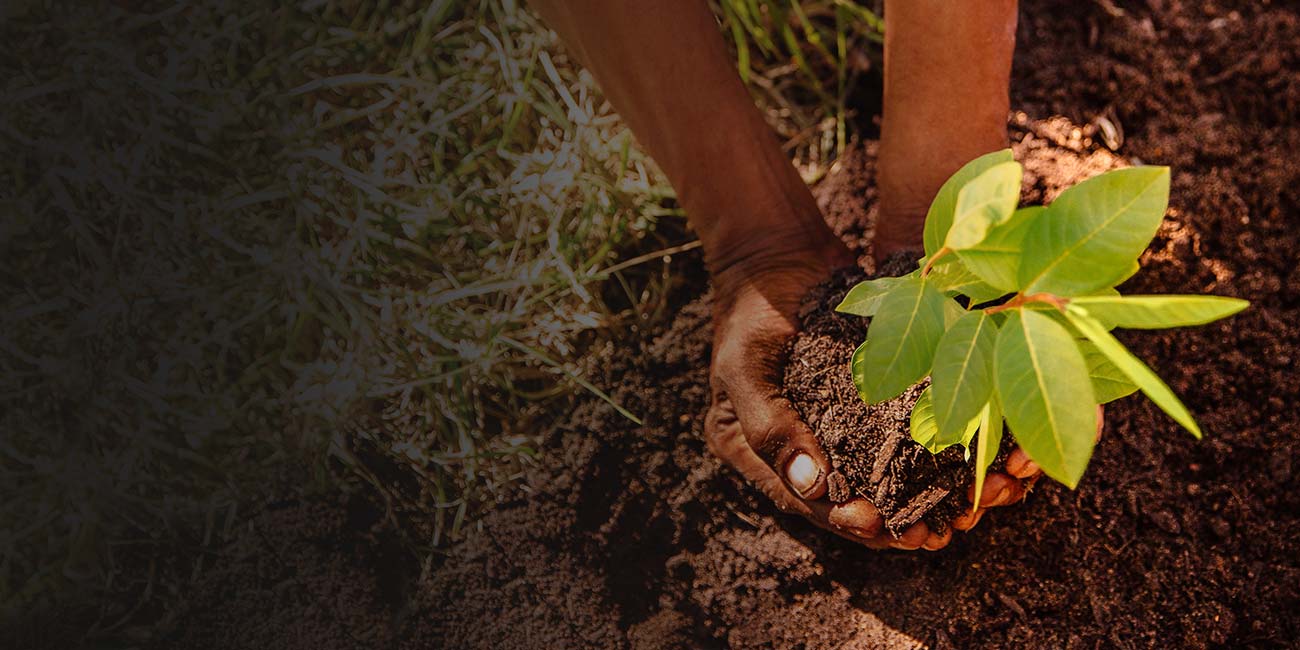According to dentsu's Consumer Vision 2030, we as consumers can no longer avoid acting on climate change. Doing so also offers opportunities for brand growth: '66% of consumers believe a company's reputation will depend on its actions to tackle climate change by 2030'.
What are the building blocks for a sustainable lifestyle and what can companies do (better) to support and improve measures against climate change according to Marene Arnold from Mastercard? Read about her thoughts on this topic in this interview.

Based on your experience, what are the building blocks to a more sustainable lifestyle?
As a consumer, there are so many things you can do at home to make a change. From getting solar panels and green energy to everyday things like using your bike instead of a car, taking a re-usable cup or a refillable water bottle when you’re on the go, to stop eating meat and drinking milk, buying less new clothes, and so forth.
I think it comes down to finding a way to do all the things you want and need to be happy and live your best life, but doing them in the most sustainable way possible. Which is not to say that you have to always be a saint, because no one likes that. I think being aware of the impact your actions have and what alternatives there are, is step one.
At times I find it hard to mention I am a full time vegetarian and part-time vegan, because usually when they hear this, people go into full apologetic mode saying things like ‘oh, I hardly eat meat anymore too’. As if they feel like they have to defend themselves. I do applaud all the efforts people make in this area, because I realize it is not easy to change something that you are used to.
Having that said, anyone who reads all the available information knows that the meat (and dairy) industry is incredibly polluting. But people tend to look away. Also, the misinformation bothers me. Some people say silly things like ‘there is a lot of female hormones in soy products so I cannot eat those’ or ‘I work out a lot, so I need to eat meat’ and more stuff like that. If you care about the world and wonder what you can do to contribute to sustainability in a positive way, I’d say: educate yourself. Realize that you don’t need to be perfect, no one is, neither am I.

What can companies do better to support and elevate actions that address climate change?
I think consumers can start small by making little daily changes, but if a company really wants to make a change, they need to have some ambitious and concrete goals. Ideally, work with partners. Together with them you can do a lot more, get better and reach higher goals. You’ll push each other and the impact of your actions increases.
What companies need to realize is that it is useless to do well on a planet that is dying. Don’t be a success in a world that is failing. What companies can do is inform consumers, encourage and empower them and give them tools. Like we do at Mastercard.
We are a global brand with a network of almost 3 billion consumers and corporate cardholders. If all these people take action to protect the environment, we can make a huge impact. Mastercard is mobilizing against climate change directly through our business, and by committing to net-zero emissions by 2050 and supporting our suppliers’ decarbonization efforts. We’re developing innovations that regenerate natural resources and reduce carbon footprints. We’re leveraging our network effect — giving consumers tools to measure their own footprints and make donations to the Priceless Planet Coalition (PPC). We also enable consumers to contribute to solutions that benefit our environment, such as linking rewards programs to Priceless Planet Coalition’s work. Cardholders can direct their reward points to the PPC, with the value of their points being directed to forest restauration projects.
In 2020 we formed the Priceless Planet Coalition with the commitment to regrow 100 million trees in the earth’s most vulnerable forests to maximize carbon capture for climate benefit. Membership expanded to 40 companies by the end of 2020 and in May 2021 we had almost 60. Our first project commitments are to restore landscapes in Kenya, Brazil and Australia, with restoration activity taking place throughout 2021.

What can individuals do to ensure that change happens? Does it need to happen within the industry or externally?
Both! It’s probably clear by now that I don’t think individuals can just wait for change to happen. We must drive that change. A revolution starts with the people. All revolutions start small. As a consumer, you make a choice with your wallet. If you buy from companies that don’t do anything to improve the world, you’re rewarding and financing that type of behaviour.
What the industry can do is to build tools that can give consumers an insight into their behaviour. For example, Mastercard has developed a carbon calculator which can be integrated in their app by card issuers. When you purchase something using your Mastercard, the carbon footprint of this purchase is calculated and shown. This is a direct visualization of the effect your purchase has.
It also helps if companies encourage and empower consumers. You, as a company, need to show consumers that you are doing your part wherever you can. It may seem small for example, but we are encouraging wider adoption of certified, eco-friendly materials by card manufacturers in order to equip consumers with more sustainably produced cards. Having said that, we don’t issue cards, but our partners do, such as banks. We can only offer the option. After that, it is out of our hands. That is also what I mean by the importance of working together with partners to make sure change happens. In 2020, the number of sustainably made cards grew by more than 70% over 2019, demonstrating a drive towards global adaption. We have found 26 vendors who can produce cards that are environmentally friendly, and more than 80 financial institutions have issued them so far.
In addition to the fact that banks have now started issuing these cards, I think end users should also ask for them. Consumers need to cause the pull, because if you, as a consumer, never mention wanting an environmentally friendly alternative for an existing product, the industry won’t move.
What is one message you want the audience to take away and/or what is your personal commitment?
Be the change and make informed decisions based on facts!




